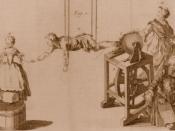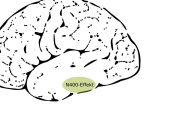Abstract
One hundred and sixty-six students taking Psycology105 were involved in an experiment which tests whether false memories can be produced by studying a list of words that were related semantically. It was assumed that the lure would have a high rate of remember responses. The results from the experiment proved that the lure is likely to produce false recalls, by studying semantically related lists.
Does Studying a Semantically Related List of Words Produce False Memories?
What produces false memories? This has been in the minds of psychologists, ever since the time of Aristotle, who claimed that the mind creates mental associations (contiguity, similarity, and contrast) (cited in Henry L. Roediger 111, David A. Balota & Jason M. Watson, 2000).
An experiment that was investigating the remembering of words not presented on the list, resulted with a mean probability of .65, for the recall of studied words, while for the lure words, a mean probability being recalled was .40.
(Cited in Henry L. Roediger 111 and Kathleen B. McDermott, 1995).This however, can be explained in many factors, such as, that the priming of ideas became known once a related concept was activated. (Cited in Gray, 2002)
Also, another factor is that phonetic characteristics are activated when studying words, as well as semantic traits, which are produced at an equal rate. (Cited in Jason M. Watson, David A. Bolata, and Henry L. Roediger 111, 2003).
However, false memories are likely to occur when studying semantically related lists, due to associative priming, where one concept triggers other ideas alike, both semantically and phonetically. Because the mind acts as a network, all ideas are linked from one to another. This allows the mind to understand its surroundings. (Cited in Gray, 2002).
The experiment undertaken on campus is based on the works of Watson,


